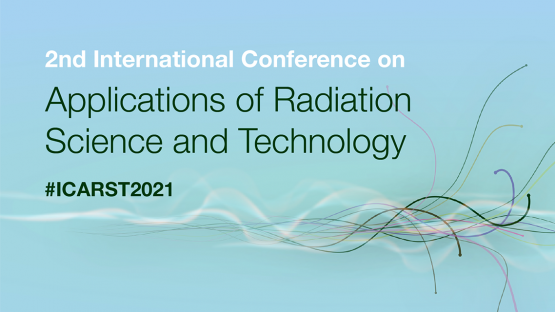Interested contributors have until 31 July 2020 to submit abstracts for the Second International Conference on Applications of Radiation Science and Technology (ICARST-2021), to be held at IAEA headquarters in Vienna, Austria, from 19 to 23 April 2021.
ICARST-2021 will cover a variety of topics related to the applications of radiation technologies in fields as diverse as industry, medicine, materials science, engineering, biology, physics and chemistry – building on the success of the First International Conference on Applications of Radiation Science and Technology in 2017. The Conference will serve as a platform for fostering new initiatives among industry and academia, establishing new and strengthening existing collaborations and identifying best practices as well as to raise awareness among decision makers on how radiation technologies can be applied to meet global challenges.
“Radiation techniques are some of the most environment-friendly and cost-effective methods available and that is why their applications are becoming increasingly important in many areas,” said Melissa Denecke, Director of the Division of Physical and Chemical Sciences at the IAEA.
ICARST is a major IAEA event taking place every four years and bringing together leading scientists and engineers to discuss key scientific and technological advancements in radiation technology. Uniquely among conferences on these topics, there is no registration fee for ICARST, allowing more participants from developing countries to attend the event.
“If you are working in the field of applications of ionizing radiation technologies, you should not miss ICARST. You get a truly global 30 000 feet view of the advances in the science, the commercial applications, as well as the possibility for outstanding networking opportunities,” said Suresh Pillai, Professor of Microbiology at Texas A&M University in the United States.
“The level of international cooperation in this field is very high and strategic public–private partnerships are important. ICARST gives an opportunity to scientists and experts to team up with industry specialists – through these partnerships, radiation technologies can be scaled up and, in many cases, commercialized,” said Andrzej Chmielewski, Director General of the Institute of Nuclear Chemistry and Technology in Poland, which is an IAEA Collaborating Centre for radiation technology and industrial dosimetry.
Participants will have the opportunity to discuss new trends in the field, such as scaling laboratory applications to pilot scale prototype; development of products and processes for clean and sustainable energy; development of alternative technologies to replace radiation sources with machine-generated radiation.
Topics covered will include:
- advanced radiation chemistry and trends in radiation science and technology;
- emerging roles of radiation sciences and technology in environmental monitoring and protection;
- new generation of radiation sources: gamma ray, electron beam, and X-ray;
- alternative radiation sources based on accelerator technologies;
- advanced materials: from fundamentals to applications;
- dosimetry, standards and quality management of irradiation facilities;
- radiation sterilization and microbiological qualification;
- radiation technologies in tissue banking and tissue engineering;
- recent radiation processing applications in food and agriculture;
- tracers and radiotracers applications for studying industrial and environmental processes and flow visualisation;
- computational fluid dynamic and numerical Residence Time Distribution modelling;
- sealed sources nucleonic control and measurement systems and imaging technologies;
- education and training in radiation science and technology;
- radiation and nuclear technologies for characterization, imaging and preservation of cultural heritage;
- success stories on how radiation science and technology are applied to achieve the United Nations Sustainable Development Goals.
Those wishing to present a paper at the conference — either as a presentation or in the form of a poster — need to submit an abstract in electronic format through the conference’s web-based file submission system (IAEA-INDICO) by 31 July 2020. Paper copies cannot be accepted and the instructions on the format of the submissions must be closely followed in order for the abstract to be considered by the Programme Committee.
Follow the Conference on social media with #ICARST2021.





